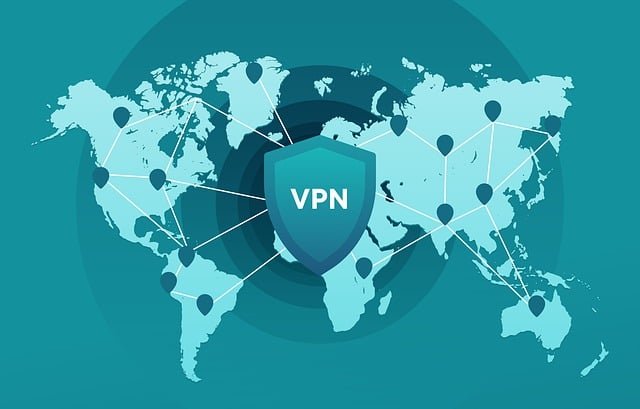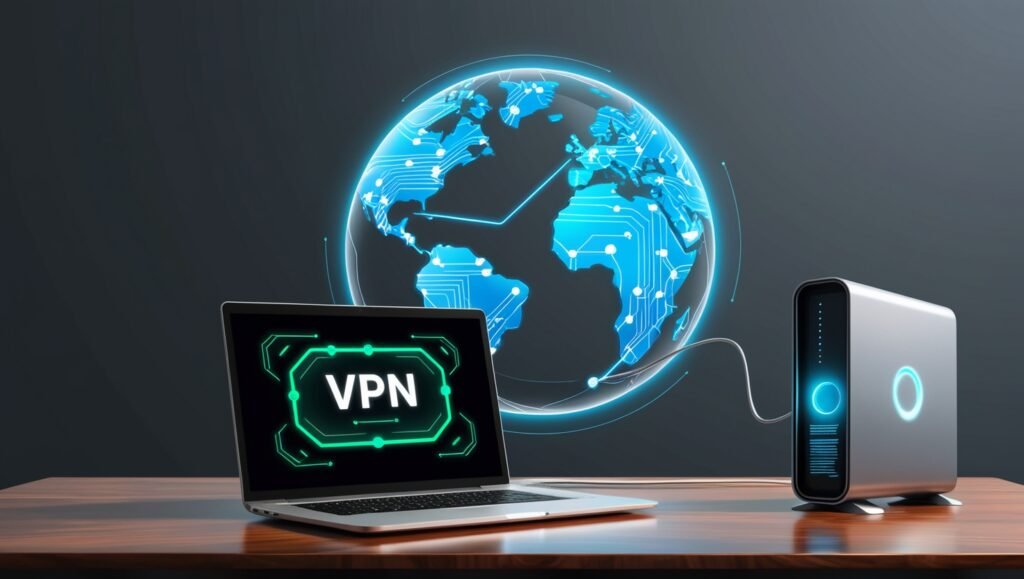The Ultimate Guide to VPNs: Why You Need One and How They Work

A VPN (Virtual Private Network) is a tool that creates a secure, encrypted connection between your device (like a phone or computer) and the internet. It hides your online activities by sending your data through a private tunnel, making it harder for others (like hackers, websites, or even your internet provider) to see what you’re doing.
In today’s digital world, safeguarding your privacy and security has never been more important. With cyber threats, data breaches, and invasive online surveillance on the rise, the need for tools that protect your online activity is paramount. One of the most powerful tools available for this is a VPN (Virtual Private Network). Whether you’re concerned about security while browsing the internet, accessing geo-blocked content, or simply keeping your online activities private, a VPN can offer peace of mind.
In this guide, we’ll break down everything you need to know about VPNs: what they are, how they work, and why you should be using one.
What is a VPN?

A VPN (Virtual Private Network) is a service that allows you to establish a secure, encrypted connection to the internet. Think of it as a tunnel between your device (whether it’s a computer, smartphone, or tablet) and the internet. When using a VPN, all your internet traffic is routed through a remote server operated by the provider, making it harder for anyone to track your online activities or steal sensitive information.
Key Features of a VPN:
- Encryption: Your internet traffic, which means your data is converted into an unreadable format that can only be decrypted by your VPN provider.
- IP Masking: It also hide’s your IP address, which is a unique identifier assigned to your device when you’re online. Instead of seeing your real IP, websites and services will see the IP address of the VPN server.
- Access to Geo-Blocked Content: VPNs allow you to change your virtual location by connecting to servers in different countries, enabling you to bypass geographic restrictions and access content that may not be available in your region.
- Here’s how a VPN: (Virtual Private Network) works, simplified into seven steps:
- Connection Setup: You connect to the internet via a VPN app or service.
- Encryption: The VPN encrypts (scrambles) your internet traffic.
- Secure Tunnel: Your data travels through a secure, private “tunnel” to a VPN server.
- VPN Server: The VPN server acts as a middleman, sending your requests to websites.
- Anonymity: Websites only see the VPN server’s IP address, not yours.
- Data Encrypted Back: The server encrypts the data you receive, sending it back through the tunnel.
- Decryption: Your VPN app decrypts the data, so you can view it securely.
- This keeps your activity private and secure!
How Does a VPN Work?
A VPN, or Virtual Private Network, works like a secure tunnel for your internet connection. Here’s a simple breakdown:
- Connection: When you connect to a VPN, your device links up to a remote server run by the VPN provider.
- Encryption: Your data is encrypted, which means it’s turned into a code that only the VPN server can understand. This keeps your information private from anyone trying to snoop, like hackers or your internet service provider.
- IP Address Change: The VPN server assigns you a new IP address, making it look like you’re browsing from a different location. This helps protect your identity and can also allow you to access content restricted in your region.
- Secure Browsing: All your internet activity passes through this secure tunnel, so you can browse more safely, especially on public Wi-Fi networks as this ensures that your online activities remain private, even on unsecured networks.

Why You Should Use a VPN
Using a Virtual Private Network (VPN) offers several benefits, especially in today’s digital landscape where online privacy and security are paramount. Here’s a detailed breakdown of why you might want to consider using a VPN:
1. Enhanced Privacy and Anonymity
- Masking Your IP Address: A VPN hides your real IP address and replaces it with one from the VPN server. This makes it difficult for websites and services to track your online activities.
- Avoiding Tracking: Many websites track your behavior for targeted advertising. A VPN helps in minimizing this tracking, providing a layer of anonymity.
2. Improved Security
- Encryption of Data: VPNs encrypt your internet traffic, making it difficult for hackers, ISPs, or anyone else to intercept and read your data. This is especially important when using public Wi-Fi networks, which are often unsecured.
- Protection from Cyber Threats: A good VPN can provide additional security features like malware protection and ad-blocking, helping to keep you safe from malicious websites.
3. Access to Restricted Content
- Bypassing Geographical Restrictions: Many streaming services and websites restrict content based on geographical locations. A VPN allows you to connect to servers in different countries, giving you access to a wider range of content.
- Avoiding Censorship: In some regions, access to certain websites or services is blocked. A VPN can help bypass these restrictions, allowing you to access the open internet freely.
4. Secure Remote Access
- Connecting to Work Networks: For remote workers, a VPN can provide a secure way to connect to company networks, allowing for safe access to sensitive company data.
- File Sharing and Collaboration: VPNs facilitate secure file sharing and collaboration over the internet, ensuring that sensitive information remains protected.
5. Preventing Bandwidth Throttling
- Avoiding ISP Limitations: Some Internet Service Providers throttle bandwidth for specific activities like streaming or gaming. Using a VPN can help circumvent these limitations, potentially improving your internet speed.
6. Safety on Public Wi-Fi
- Protection Against Eavesdropping: Public Wi-Fi networks, like those in cafes or airports, are often targets for cybercriminals. A VPN encrypts your connection, making it much more difficult for others on the same network to intercept your data.
7. Cost Savings
- Lower Prices on Services: Some websites show different prices based on your location. By using a VPN to change your virtual location, you might find cheaper deals on flights, subscriptions, or other services.
8. Online Gaming Benefits
- Reduced Lag and Better Connection: Some gamers use VPNs to connect to servers that might provide a better gaming experience. Additionally, VPNs can protect against DDoS attacks.
- Accessing Region-Locked Games: A VPN can help gamers access games or content that may be restricted in their region.
9. Customizable Settings
- Choice of Servers: Many VPNs allow users to choose from a variety of servers worldwide, enabling them to optimize their connection based on speed or content access.
- Advanced Features: Features like split tunneling (choosing which apps use the VPN) and kill switches (disconnecting your internet if the VPN drops) enhance user control and security.
10. Legal and Regulatory Compliance
- Protecting Sensitive Information: Using a VPN can help ensure compliance with regulations like GDPR by securing data transmission for businesses that handle sensitive client information.
Choosing the Right VPN
When selecting a VPN service, consider the following factors:
- Security Protocols: Look for VPNs that use strong encryption protocols such as OpenVPN or WireGuard.
- No-Log Policy: A no-log VPN ensures that the provider does not keep records of your online activity, further enhancing your privacy.
- Server Locations: Especially in regions where you want to access content for a VPN with a wide variety of server locations.
- Connection Speeds: Choose one that offers high-speed server’s as some VPNs can slow down your connection due to the encryption process.
- Price: While free VPNs exist, they often come with limitations such as bandwidth caps or fewer server options. For optimal performance, consider a paid VPN service.
Conclusion
A VPN isn’t just a tech tool—it’s your shield in an increasingly connected world. By encrypting your data, hiding your IP address, and giving you access to unrestricted content, VPNs empower you to take control of your online privacy and security. Whether you’re working remotely, streaming your favorite shows, shopping online, or just browsing, a VPN ensures your activities stay safe and private. In 2025 and beyond, protecting your digital footprint is no longer a luxury—it’s a necessity.
Don’t leave your online security to chance. Take the first step toward safer, more private browsing today by choosing a trusted VPN provider.
Click here to explore the best VPNs of 2025
Thank you for reading this guide! We hope it has given you the clarity and confidence you need to make informed decisions about protecting your online life. If you found this helpful, please share it with your friends, family, or anyone who could benefit from learning about VPNs. Together, we can make the internet a safer place for everyone. Stay secure and happy browsing!
Warm regards,





Please keep comments helpful and respectful.
No affiliate links, promotional links, or YouTube URLs.
Let’s keep our community clean and supportive! 💙